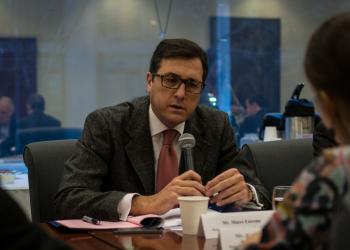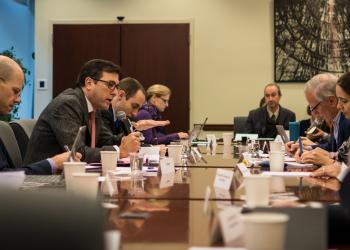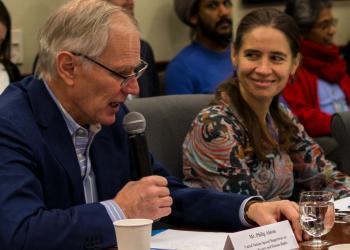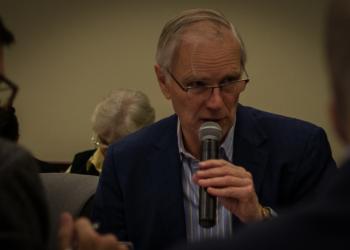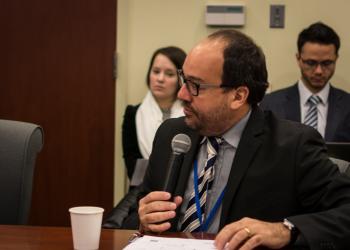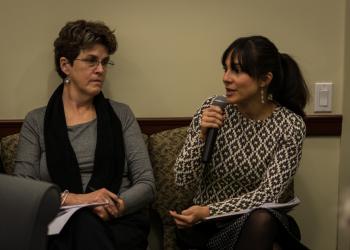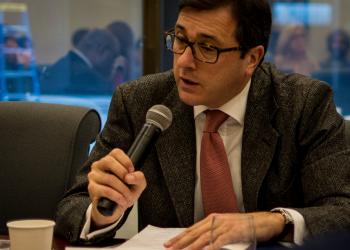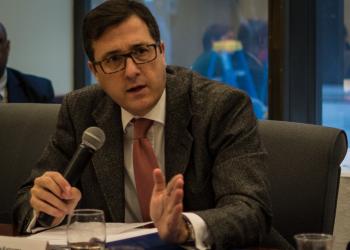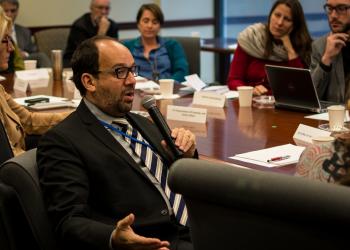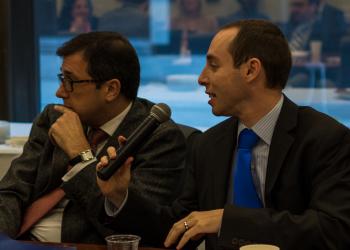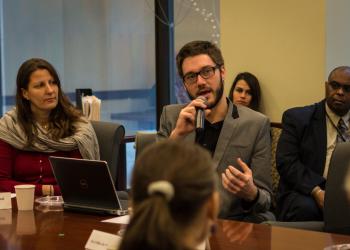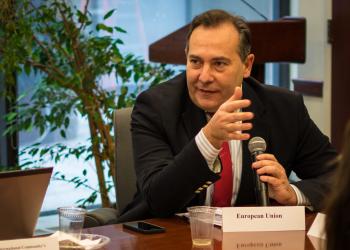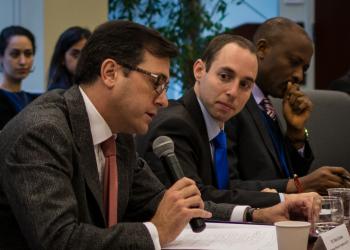Not only about justice, social protection also promotes economic growth
Efforts to provide minimum education, income and pensions for people across all ages has been a source of economic growth for countries, rather than a drag on national budgets.
That was the experience in Latin American in the first decade of the 2000s, said Mateo Estreme, deputy permanent representative of Argentina to the United Nations.
“I believe we have to look at social protection floors not as an expenditure but as an investment,” said Mr. Estreme, speaking on 20 November 2014 at an informal breakfast meeting on the topic of “social protection floors” in relation to the post-2015 development agenda.
“And it is not only an investment in the human resources of the country but also, I believe, an important way of promoting growth.”
Mr. Estreme said economic growth was among the many reasons that strong language promoting social protection floors should be included in the Sustainable Development Goals (SDGs) that are now being negotiated at the United Nations.
“Our motto for post 2015 is ‘no one left behind,’ and with these social protection floors, the main purpose is to not leave anyone behind,” said Ambassador Estreme.
“From early childhood until old age, social protection floors are a way of introducing the idea that all sectors of society, at all ages, should be included, should be protected, and should have income, security, access to health services, education services and so forth,” said Mr. Estreme.
Philip Alston, the UN special rapporteur on extreme poverty and human rights, agreed that the economic benefits of good social protection floors make their inclusion in the SDGs a very rational decision.
He added, however, that social protection should also be cast in terms of human rights – so that states will feel more obligated to provide minimum levels of social security once new SDGs are agreed on.
“The current draft avoids the use of human rights,” said Mr. Alston. “The consensus we can take from this is that human rights are not relevant, let alone even central, to the development process.
“I think we have to push back on that,” he said, speaking to a mixed group of diplomats, UN agency officials and representatives of civil society at the offices of the Baha’i International Community (BIC).
Prof. Alston said the language used in articulating the SDGs will matter very much in the long run.
He said, for example, that the World Bank seems to prefer the default phase “safety net” to “social protection floor.”
The word “net” implies “a number of bureaucrats making fine line decisions” about what social protections to provide, he said.
But if social protections are cast as an element of human rights, along the lines of the International Covenant on Economic, Social and Cultural Rights, then the SDGs “will be much more robust.”
Prof. Alston and Mr. Estreme also spoke about the importance of establishing well considered indicators and targets in the SDGs.
“If there isn’t accountability under implementation, then the work will have little impact,” said Prof. Alston.
In the discussion that followed, participants spoke further on the need for specific indicators and concrete targets in the SDGs, the importance of considering social protection floors as a universal goal, applicable to both developed and developing countries, and the success of specific, country-level programs, like Brazil’s Bolsa Familia, as models for other countries.
The meeting was the 21st such effort to bring together diplomats, UN officials and NGO representatives in an informal atmosphere to discuss topics related to the post-2015 development agenda. It was co-sponsored by the BIC and International Movement ATD Fourth World.
Informal notes of the meeting can be read here.
